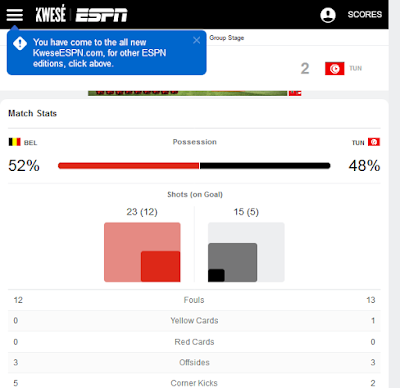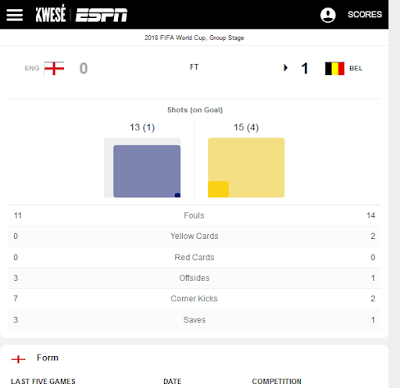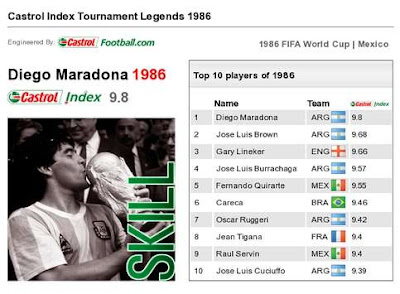Morocco. Tunisia and the AFCON illusion
Anyone using the African Cup of Nations as a yardstick by which to guage the strength of an African nation in football may well be making a mistake.
An analysis of African football brings forth the interesting fact that at least 2 of the strongest African nations take the African World Cup Qualifiers at least a bit more seriously than they take the Nation's Cup.
The essence of the point being made above is not in its universality. It is certainly not applicable to all African soccer playing countries. It surely does not apply to the Pharaohs of Egypt, perhaps the only one of Africa's leading soccer nations that can be accused of taking the AFCON more seriously than World Cup qualification. Egypt have won the Nation's Cup a record 7 times, part of which was the amazing 3 consecutive wins between 2006 and 2010. In comparison, the Pharaohs have only qualified for the World Cup 3 times, or more realistically twice from an authentic African qualifying process.
Neither does the argument apply to the Indomitable Lions of Cameroun, who besides qualifying for an unprecedented 8 World Cup tournaments (an African Record), have also been very dominant in the African Cup of Nations since they first won it in 1984. (having won it an impressive 4 times since then)
But it certainly does apply to the Carthage Eagles, the soccer national team of Tunisia, who despite qualifying for 6 World Cup tournaments, the current one inclusive, have won the African Cup of Nations just ONCE in their history, which happens to be when they were hosts in 2004. Despite holding the record for consecutive qualifications for the Nation's Cup (15), Tunisia have not won an AFCON medal since they won that tournament in 2004, yet, in comparison, they have qualified for the World Cup 3 times since then! (2006, 2018 and 2022).
Ultimately, the most glaring example of seeming preference for World Cup qualification over and above excellence at the African Cup of Nations are the Atlas Lions of Morocco, who have been the pleasant surprise team mainly to the delight of Africans, Arabs and Moslems at the current 2022 World Cup in Qatar. The Moroccans have surpassed their groundbreaking second round stage achievement of 1986 by again achieving a first in being the first African team in a World Cup last 4, reaching the semi finals of the current ongoing competition, a first for any African or Arab nation. Morocco's Atlas Lions have delivered glory to themselves and their fellow Arabs as a sort of vindication of the first World Cup to be held on Arab soil, succeeding way above the host nation, Qatar and even Saudi Arabia, who initially showed great promise in beating Lionel Messi's Argentina.
It is pertinent to note that this same Moroccan team were unable to go past the quarterfinal of the last African Cup of Nations tournament that was held in Cameroun between January and February this very year. The Moroccans that have not conceded a single normal goal prior to the semi final of the 2022 World Cup despite playing against highly rated teams like Croatia, Belgium, Spain and Portugal had at the AFCON 2021 actually conceded 2 goals to be knocked out in the quarter finals by the same Pharaohs of Egypt that failed to achieve World Cup qualification! This is in keeping with a failure of the Atlas Lions to either win or reach a final of the AFCON in all but just 2 of the 33 editions of the competition to date. Having won the AFCON just once in 1976, it took them another 28 years to reach the final of the same tournament in 2004, losing to Tunisia. Since 2004, Morocco HAVE NOT REACHED an African Cup of Nations semi final.
Regardless of whatever the Moroccan winger Sofiane Boufal said or did not say, by far the greatest indicator as to Morocco's capacity to reach a World Cup semi final (or perhaps even better, incredible as it may seem) was the Atlas Lions amazing record as AN AFRICAN NATION in African World Cup Qualifiers since 2017! A record totally at variance with their performance in what is supposed to be Africa's top soccer tournament.
Morocco qualified from Group C of the 2018 World Cup Qualifiers, winning 3 matches and drawing 3 without conceding a single goal (by far the best defensive record in the qualifiers) . This impressive defensive record did not extend to the 2017 African Cup of Nations in which Morocco was eliminated in the quarter final after conceding a goal in 3 separate matches. Not a terrible defensive performance but clearly worse than their record in the World Cup qualifiers.
Morocco's performance in the 2022 World Cup qualifiers was even more impressive. They won all of their qualifiers, home and away except the last one which was a second leg draw having beaten the Democratic Republic of Congo in the first leg by 4 goals to 1.
The contrast between Morocco and Tunisia's records in World Cup qualifiers as against their records in the African Cup of Nations shows that there is a tendency for African teams to take the former more seriously than the latter!
The conclusion is that those who run football in Africa, the Confederation of African Football inclusive, must find a way to make the AFCON tournament more prestigious and precious to African national teams so that we would see a higher quality of football in the 2 yearly competition.
















Social Plugin